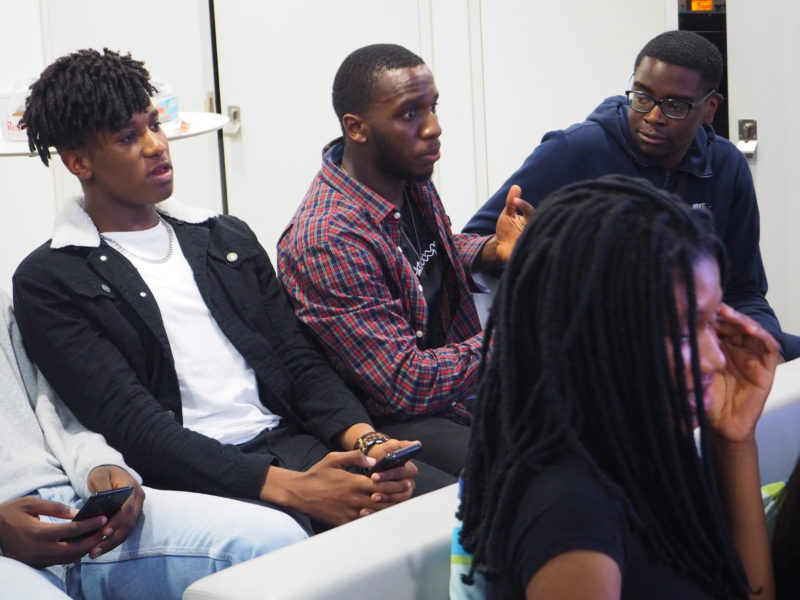The buzz in the Global Room was audible last night, as attendees of Letters to the Motherland – many of whom are members of Trinity’s Afro-Caribbean community – piled in for one of the first Trinity Afro-Caribbean Society events of the year. As an outsider, I felt welcome from the minute I stepped into the room. One committee member invited me to join one of the society’s social “tribes”, while another actively encouraged me to join in with the panel discussion if I wished. Both gestures were a reflection of the inclusive and engaging atmosphere of the evening.
Hosted by final-year genetics student David Ola, a former JCR President, the event followed a strict format: a problem facing black Irish youths was presented to the room in the form of a letter, after which a question was posed to the panel of guest speakers. Audience participation was actively facilitated and encouraged, and after each guest speaker spoke, input was sought from the crowd. The panel was made up of three prominent members of the Afro-Caribbean community in Dublin – the society’s former treasurer Rayo Balogun, Trinity undergraduate and current Oxford criminology student Daniel Olaniyi, and Charlie Adebayo, who hosts the podcast “Pints of Malt”.
The letters presented by Ola covered a range of topics – from the controversial decision to cast a black actress in the role of Ariel in the live-action remake of The Little Mermaid, to violence against Nigerians in South Africa, and the influence of drill music on a reported increase in violence amongst black youths. The four topics for the letters were chosen by committee members throughout the summer. “Usually what we do is take topics that are current or maybe something that has happened before, that we know is affecting the black community, and we talk about it”, society Chair Alimi Olashile told The University Times after the event. “It’s about trying to get the opinion of the general public, and get more awareness of things that are happening amongst us out to the people.”
Each topic resonated with the audience in different ways, as was proven by the persistent loud chatter in between speakers. This posed a challenge to Ola who, in the absence of a microphone, managed to skilfully moderate the audience-panel debate to allow everyone’s voices to be heard. The most controversial subject of the evening was arguably the mention of recent xenophobic attacks on Nigerians living in South Africa, which drew audible intakes of breath when it first appeared on screen.
“What is happening right now in South Africa is inexcusable”, commented Olaniyi. “There is racism within Africa, there is discrimination within Africa, which is not justifiable in 2019.” The first audience contributor of the evening, who was well-versed on racial tensions in South Africa, drew laughter from the crowd when he responded: “Even to Africans, black lives don’t matter.”
As the evening progressed, consensus between audience members and panel members wore thin. Asked whether there was a “double-standard” in the public horror at Dublin rap duo Versatile’s profane and racist references to black women as against the lack of backlash to African-American artist Chris Brown’s references to black women in his music, each individual had their own take. Adebayo sought to direct the conversation towards the treatment of black women in all of hip-hop, where Olaniyi drew applause by attempting to contextualise the difference between the two acts. “There is a difference between someone saying this who has been surrounded by ghettoisation [Brown], but you cannot say that two white men who are privileged in society saying that is okay just because black people say it, too”, he said.
The conversation lost its way at this point, until Balogun reined it back by commenting: “The way we are spoken about [in music] is actually disgusting. It is not right at all.”
Overall, it was a successful evening for TCD Afro-Caribbean Society – there were not enough seats to hold everyone who came, and Ola’s confident manner allowed him to balance panel discussion with audience participation effectively. With the implementation of the Trinity Education Project (TEP) causing engagement problems for many societies within the last year, this is a sign of good things to come for the society.







